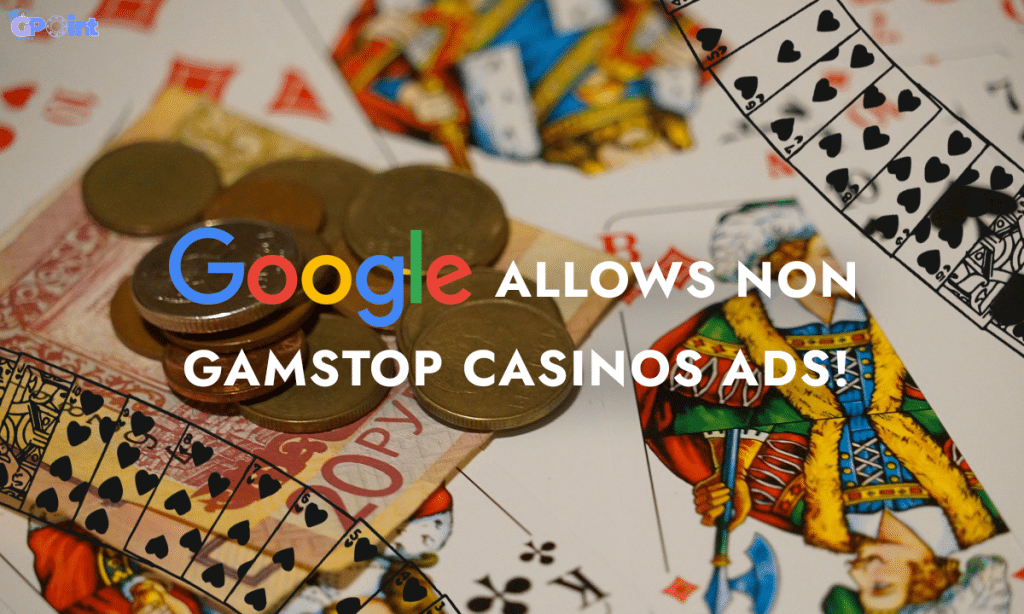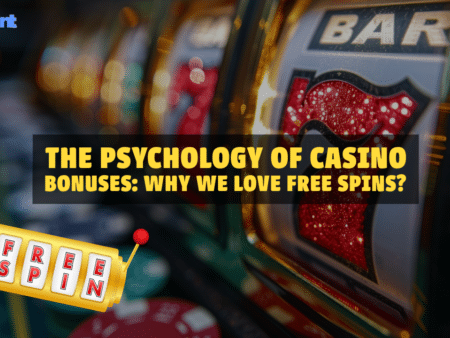The Independent revealed problems with Google search terms that target GamStop registrants and lure them into offshore casinos as “no GamStop“.
For example, if you type in Google “GamStop” almost all of the results you will see are offshore affiliate sites promoting non GamStop casinos in which self-excluded players can participate without any restrictions.
That’s means addicts looking for gambling addiction help being served up ads for offshore casinos in search results.

TOP Casinos not on GamStop examples:
▶ Disclaimer
We maintain an affiliate partnership with this casino. Our earnings are generated when players visit the casino's website, register an account, and make deposits. It's important to note that this arrangement does not impact the review or rating of the casino
🦺 Secure 🤨 Trusted ✅ Verified 🇬🇧 Accepted
Last Updated: 7 June 2025
Non Gamstop Sites
- Generous bonuses and promotions
- Wide variety of currencies and payment methods
- Broad range of games and software providers
Non UK Casinos
- Higher withdrawal limits
- Tailored VIP programs
- Operate under international licenses
Crypto Casinos
- Instant deposits and withdrawals
- Secure blockchain technology
- Access to new and unique games
Bookmakers not on gamstop
- Wide range of sports and markets
- Exclusive betting promotions
- Enhanced privacy for players
Table of contents
This way, instead of stopping themselves from gambling, they are motivated to play more.
Although the prestigious newspaper raised this issue and notified Google of it, this problem still exists. In this article, we will try to find out what is the reason behind this. And why neither Google nor other search engines have been able to stop offshore casinos from promoting their services among problem gamblers.
How Are Victims Lured Into Casinos Without GamStop?
There are two types of gambling markets in the world:
- Regulated markets
- Unregulated markets
In fact, offshore casinos are very active in both types. For example, authorities have estimated that Americans gambled more than $1 billion annually on offshore gambling sites. Therefore, a lot of states have legalized gambling activities to eliminate the black market.
Even in regulated markets, offshore gambling sites try to get more players by offering bigger bonuses, featuring more games. And providing more services and options.
The British market is no exception as it is the largest in the world and therefore gambling companies that were not fortunate enough to obtain the UKGC license still have a desire to reach out to British players. However, there is a category of offshore casinos that specifically target GamStop members.
How is that done? Affiliate sites use the term GamStop in their domain and content. Therefore, when anyone searches for “GamStop”, all that will appear to him are these sites that promote offshore gambling sites. And provide problem gamblers “tricks” on how to go around the self-exclusion.
In its article, The Independent cited four casinos located in offshore jurisdictions such as Curaçao and Cyprus. These casinos entice potential players with huge welcome bonuses of up to €10,000. In some cases, hundreds of free spins, and many other incentives.
Since GamStop does not apply to all online casinos, players can continue their unhealthy gambling habits even more in offshore casinos.
Why Can't Google Block These Sites?
Offshore affiliate sites promote gambling sites without GamStop by providing informational content not promotional content, therefore it is difficult for Google algorithms to detect a breach of the terms and conditions of the search engine.
The Bets and Games Council (BGC) commented on the issue saying: “Regulated gambling sites do not use search terms associated with words asking for help. So, we have to work with search engine companies to block these sites.”
On the other hand, GamStop's response was also very firm as GamStop CEO Fiona Palmer said: “When people search for information about self-exclusion from online casinos, they should only see results related to Gamstop and other charities that provide support for addicted gamblers.”
“Accordingly, we work with Google and other search engines to ensure that when people search for information about self-exclusion from gambling. Our website is displayed prominently and that such sites are not included in search results,” she added.
Politics has also clearly sided with this view. “I don't necessarily blame Google,” said Carolette Harris, chair of a multipartisan group on gambling-related harm. “The popular search engine is, in a way, a victim of the ingenuity of corporations who can bypass any actions we take. For me, I also have reservations about the system of self-exclusion. And I suspect that British gambling companies are willing to take tougher decisions on the problem of gambling because it reduces their profits.”
What is Google's Comment?
A Google spokesperson said: “Of course, we support responsible gambling. So we do not allow unlicensed gambling companies to promote themselves on our platform. And it is important for us that people see useful and relevant ads, but what is happening is that irresponsible gambling companies use the word GamStop a lot in its content is therefore shown to users in the first search results. Therefore, in the coming period, we will use a combination of humans. And algorithms to screen content related to irresponsible gambling and impose more restrictions on it.”































